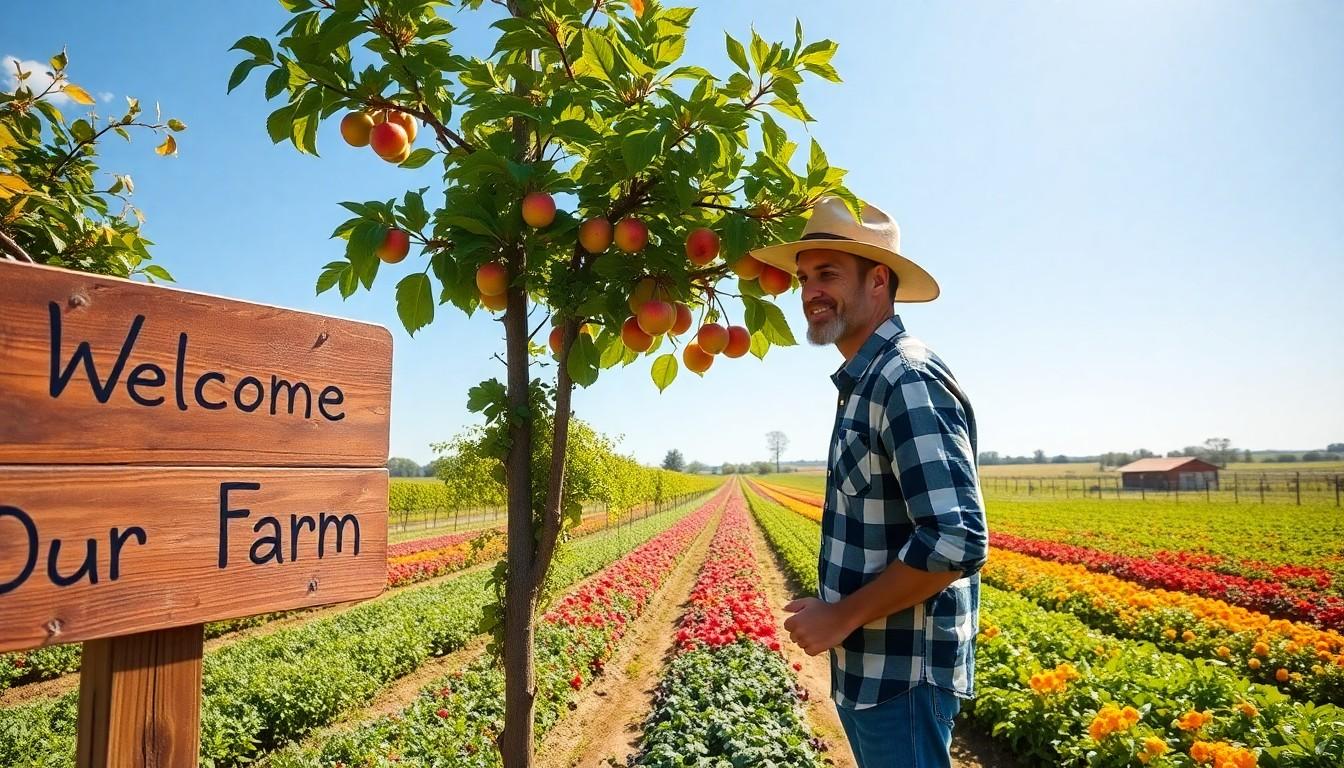Imagine sipping fresh apple cider while taking in the breathtaking views of rolling hills and vibrant fields. Agritourism isn’t just about enjoying nature; it’s a thriving industry that combines agriculture with tourism, bringing in visitors eager for authentic experiences. But what if there was a way to boost this delightful venture without breaking the bank? Enter agritourism grants—your golden ticket to transforming that charming farm into the next must-visit destination.
These grants are designed to support farmers and ranchers looking to expand their operations into the world of tourism. Whether it’s funding for a cozy bed-and-breakfast or a fun-filled farm tour, agritourism grants can make dreams come true. So, if you’re ready to turn your agricultural ambitions into a profitable reality, buckle up! There’s a world of funding opportunities waiting to help you cultivate success.
Agritourism Grants
Agritourism grants offer financial assistance specifically for farmers and ranchers transitioning into tourism-related activities. These grants enable agricultural operators to diversify income sources while enhancing visitor experiences through farm-based attractions. Funding opportunities target various agritourism projects, including facilities like wineries, pick-your-own operations, and educational programs.
Grants often come from government entities, non-profits, or private organizations. Specific programs cater to different needs, such as supporting marketing efforts, infrastructure improvements, or event hosting. Successful grant applications typically require detailed proposals outlining the project goals, estimated costs, and potential impact on local economies.
Many states also provide specialized agritourism grant programs, reflecting regional characteristics. For instance, some states prioritize grants for projects that promote sustainable practices, while others emphasize cultural heritage or rural development. Application processes often include deadlines and eligibility criteria, making it essential for applicants to remain informed.
Farmers and ranchers transform their operations with these funds, fostering economic growth and community engagement. Increased tourism not only boosts revenue but also educates visitors about farming practices. Exploring agritourism grants increases the chances of success for those seeking innovative business strategies in the agricultural sector.
Types of Agritourism Grants

Agritourism grants come in various forms, each designed to support farmers and ranchers in expanding their tourism-related activities. Understanding these options can help identify suitable funding sources.
Federal Grants
Federal grants provide significant financial assistance to agricultural operations looking to embrace tourism. Programs like the USDA Rural Development grants offer funds for projects enhancing rural communities through agritourism ventures. These grants typically target initiatives that promote sustainability and economic growth, encouraging farmers to diversify income sources. Specific requirements often include a detailed project proposal outlining objectives, budgets, and expected benefits. Various federal programs may share funding opportunities, so thorough research ensures farmers access all applicable resources.
State Grants
State grants vary widely, reflecting local agricultural needs and tourism goals. Many state governments operate specialized agritourism grant programs aimed at fostering community engagement and preserving cultural heritage. Applicants often find state-level funds available for projects such as pick-your-own fruit operations, educational farm tours, or agritourism marketing initiatives. Each state may prioritize different aspects, with some focusing on environmental sustainability or rural development. Participants should check eligibility criteria, application deadlines, and specific funding limits to maximize their chances of approval.
Benefits of Agritourism Grants
Agritourism grants provide substantial advantages for farmers and ranchers. These benefits extend not only to individual businesses but also to broader communities.
Economic Impact
Economic improvement stands as a primary benefit of agritourism grants. Increased revenue from tourism-related activities enhances the financial stability of farms. A successful agritourism project can generate jobs in rural areas, providing local employment opportunities. Additionally, increased patronage supports local businesses within the agricultural sector. Many studies reveal that every dollar spent on agritourism activities can lead to significant local economic activity. This potential growth attracts investment, benefiting the overall economy.
Community Engagement
Community engagement thrives with the implementation of agritourism grants. Agritourism fosters connections between locals and visitors, promoting cultural exchange. Educational opportunities provided through farm tours and workshops allow farmers to share knowledge about sustainable practices. These initiatives spark interest in agriculture, helping communities understand the importance of local food systems. Collaboration with schools and organizations can enhance educational programs, encouraging youth involvement in agriculture. Overall, agritourism grants help cultivate strong community ties, enriching local culture and enhancing the visitor experience.
How to Apply for Agritourism Grants
Applying for agritourism grants involves a systematic approach to ensure successful submission. Understanding the specific requirements of each grant is crucial.
Application Process
First, identify applicable grants tailored for agritourism projects, including federal or state programs. Next, gather detailed project information, emphasizing objectives and potential impact on the local economy. Applicants must complete a grant application form, which usually includes a narrative describing the project. After compiling all necessary details and forms, submit them by the specified deadline. Recognizing deadlines ensures applications receive timely consideration. Some grants might require an online submission, while others may accept physical copies.
Required Documentation
A well-prepared agritourism grant application requires essential documentation. Detailed project proposals outlining budget estimates and expected timelines play a vital role in securing funding. Specifically, business plans showcasing current operations and future tourism plans support applications. Additional documents may include letters of support from community partners or stakeholders, demonstrating collaborative efforts. Applicants should also provide proof of eligibility, which may involve tax identification numbers or financial statements. Each of these pieces enhances the overall application, increasing its chances of approval.

